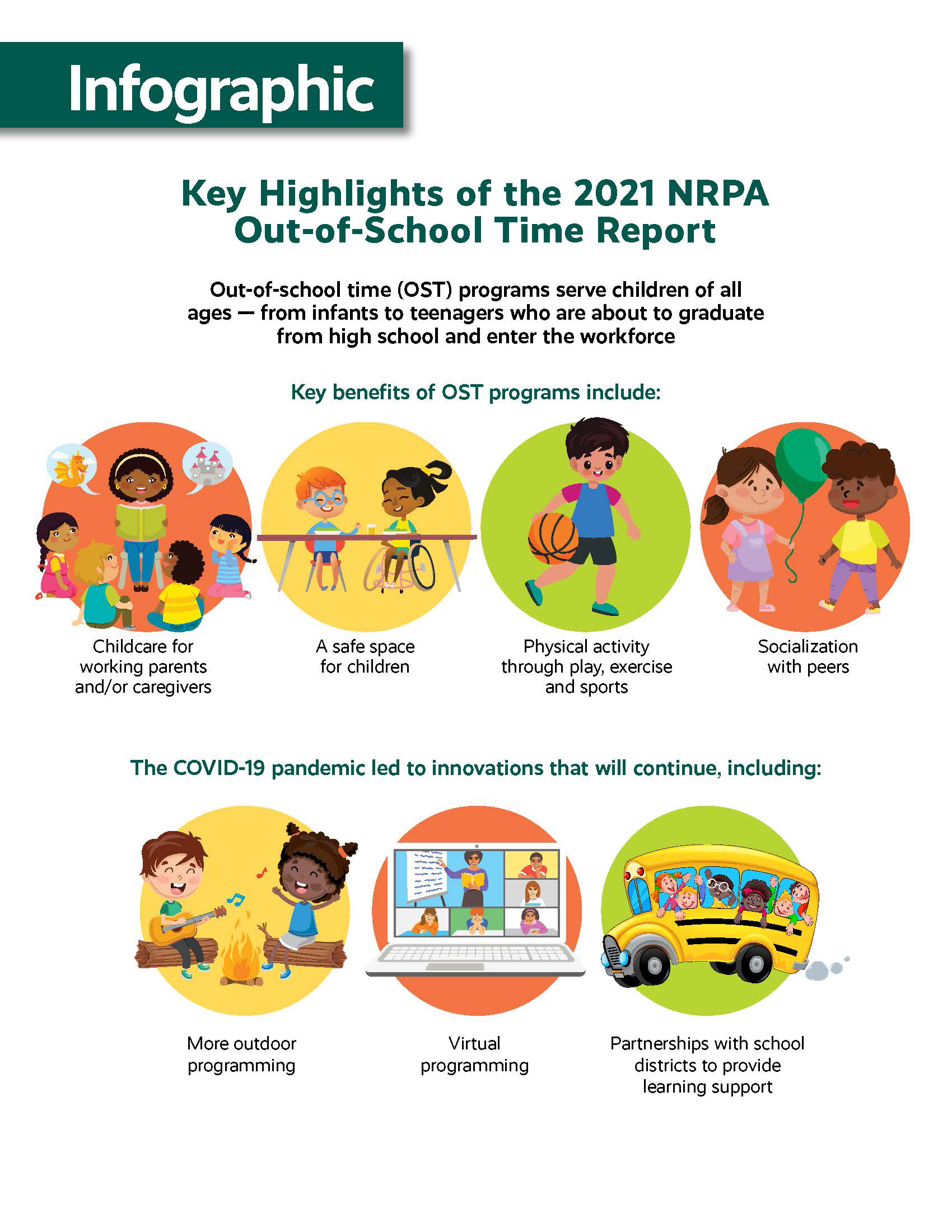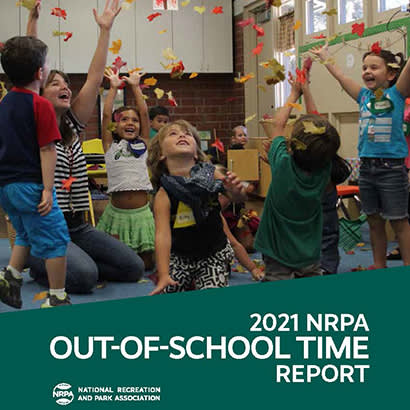Perhaps no one benefits more from all that parks and recreation has to offer than children. Local park and recreation agencies provide safe places where kids can go when they are not in school, whether before or after class or during the long months of summer. Out-of-school time (OST) programs are not only places for children to go while their parents or guardians earn a living — these programs also deliver learning and personal enrichment opportunities that open up greater possibilities for today’s youth.
Even with these programs’ great success, OST could have an even greater impact. With access to greater funding and resources, park and recreation agencies have the opportunity to broaden their impact with additional tutoring, mentoring and enrichment opportunities that improve the mental, physical and emotional health of youth.
The 2021 NRPA Out-of-School Time Report, based on the responses from an August 2021 survey of 331 park and recreation professionals, celebrates how OST programs are making a real difference in the lives of their communities’ youth. The study also highlights the challenges professionals face in delivering these programs and what more can be done to fully deliver on these programs.
Read the Report
Key Findings
- More than four in five park and recreation agencies offer OST programs
- Top benefits of OST programs include childcare for working parents and/or caregivers, offering children a safe place outside of school hours, opportunities to engage in physical activity through play, exercise and sports, social opportunities, and chances to connect youth to peers.
- Top innovations to OST programs due to coronavirus (COVID-19) that will continue include increased outdoor programming, additional virtual programming and partnerships with schools to provide learning support.
- Two-thirds of park and recreation agencies offer OST science, technology, engineering, arts and math activities.
- Fifty-seven percent of park and recreation professionals report that there are children participating in their OST programs that live in households facing significant financial challenges.
- Sixty-three percent of park and recreation leaders indicate pay not being competitive with other employment opportunities as a top barrier to recruiting and retaining their vital OST workforce.



